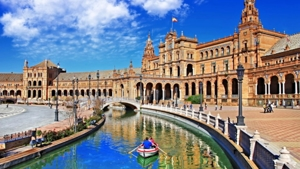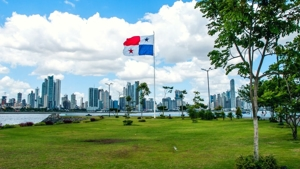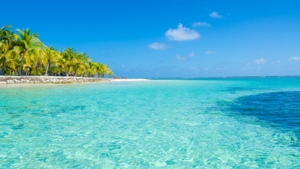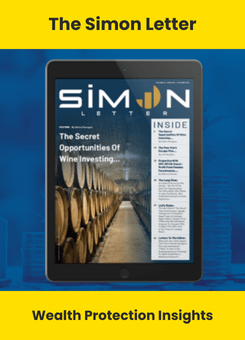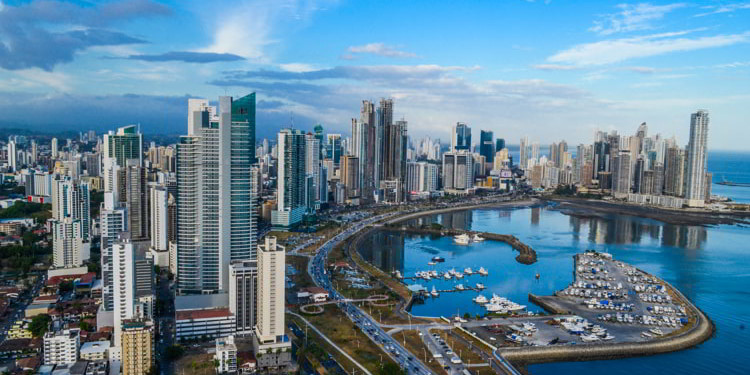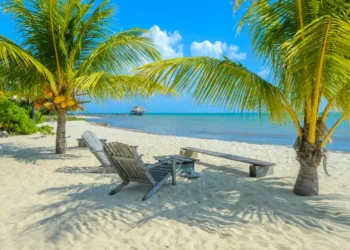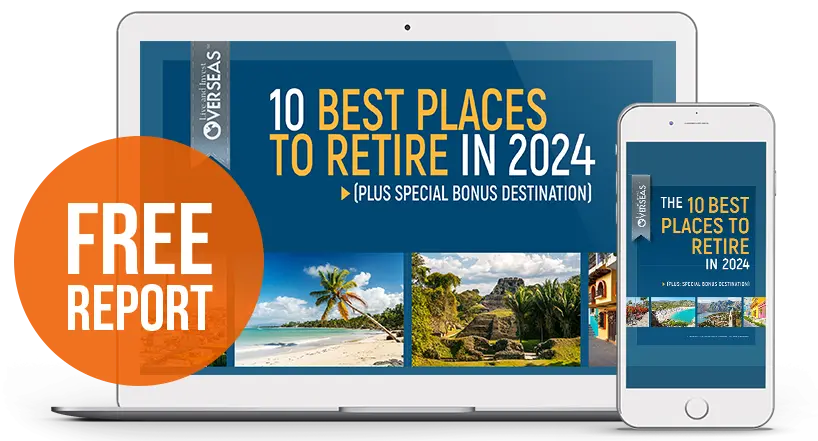Never before in the history of the United States has your wealth been more vulnerable than it is right now…
This is not true for the super-rich only. It’s true no matter who you are and regardless how much wealth you’ve managed to build for yourself.
The bad news is that there’s more hardship to come. Inept politicians, bankrupt municipalities, and a runaway budget deficit all point to new and higher taxes that will have a huge impact on every productive American’s pocketbook.
The Trump tax cuts expire in 2025.
If you really want to protect your wealth, now and for your future, you have one sensible course of action that can neutralize or minimize these threats: You must diversify offshore.
I’d like to make a few important points…
1. U.S. Debt Is At Record Highs
June 29, 2015, Greek citizens woke up to find their banks closed. There was no warning and no chance to make a last minute withdrawal of cash to hold them over.
No credit card transactions, no debit cards, and no checks.
People lined up around the block for ATMs, just to get the few bucks they were allowed in the short time before the ATMs ran out of cash.
This was no surprise to most of the world. We’d watched as Greece spent their way into oblivion—spending far more than they were taking in—secure in the belief that the rest of Europe would be foolish enough to keep pouring money into their country.
Miraculously, on July 12, Europe proved it was indeed foolish enough to bail Greece out again…
So everyone’s heard about Greece.
But what might surprise you is that, today, Greece’s level of debt, as a percentage of GDP, is falling, while U.S. national debt continues to rise…
By sheer numbers of dollars of debt, the United States is the most indebted nation in the world—the debt hit a record US$30 trillion in 2022… more than twice as large as the second-largest national debt in the world, Japan’s.
As a percentage of GDP, the U.S. national debt stands at 128%… it rose above 100% of GDP a decade ago—seen as a milestone at the time since it was the country’s highest debt level since World War 2.
But these days a debt at just 100% of GDP would be a huge reduction…
Almost everyone in the United States is thinking, “Nothing like Greece could happen here…”
But there’s no way to predict when the house of cards will topple.
The penalty for over-indebtedness is always the same… even in the United States.
Start Your New Life Today, Overseas
2. The Government Is Seizing Assets
Mandrel Stuart was the 35-year-old owner of a small barbecue restaurant in Staunton, Virginia, called Smoking Roosters BBQ Pit and Caribbean Cuisine.
One day while on his way to buy restaurant supplies, he was stopped on Interstate 66 in Fairfax on suspicion of having improperly tinted windows.
He had US$17,550 in cash in his car.
The money was confiscated by the police… even though Mandrel was never accused of a crime and hadn’t done anything wrong.
Mandrel decided to fight. When the government offered to give him half of his money back, he demanded a jury trial.
He eventually won, and the government eventually gave all of his money back, including his US$12,000 in legal fees.
However, in the meantime, Mandrel lost his business because he couldn’t cover his overheads without the money that had been stolen (let’s call a spade a spade) from him. His livelihood was gone.
In short, this is not an isolated event. It’s become an alarmingly frequent occurrence.
Lyndon McLellan had been running the L&M Convenience Mart in rural Fairmont, North Carolina, for more than 10 years.
One day, without warning, the IRS confiscated his life savings of US$107,000… money that had taken him more than 13 years to save.
He was not charged with any crime.
Again, after a fight, Lyndon got his money back… but the government refused to compensate him for more than US$19,000 in legal and accounting fees.
I’ve learned of dozens of similar accounts while researching this topic. Asset seizures by the government have risen dramatically, and you don’t need to have done anything wrong to have your property confiscated.
A 10-month study by The Pittsburgh Press showed that 80% of the people who lost property to the federal government were never charged with any crime.
3. The Lawyers Are Circling
More than 40 million lawsuits are filed in the United States each year.
We have 5% of the world’s population, 80% of the world’s lawyers, and 90% of all lawsuits.
It’s worse if you own a business, investment properties, or if you practice a profession. In these cases, you have one-in-three chance of being named in a lawsuit… this year.
As most of us know, you don’t have to be negligent to lose everything you own to a lawsuit. You just need to have assets worth targeting.
4. Tax Increases Are Inevitable
You can’t escape your ever-increasing share of taxes. And I can guarantee you that your tax burden today will not be your tax burden of the future.
As one of society’s productive members, the responsibility for the country’s fiscal debacle will fall to you.
Let’s look at just one small example: public pensions.
U.S. public pension debt now stands at a staggering US$1.45 trillion. That’s the gap between what’s owed to future retirees… and what’s currently in the pot.
To take the example of one city alone, Chicago—its pension gap is US$35 billion, up from US$20 billion eight years ago.
You can bet those hard-earned pensions will be paid… but the tab will fall to those of us who are able to pay, those with savings or assets that can be taxed.
Start Your New Life Today, Overseas
5. Your Legacy Is At Risk
When the king of rock ‘n’ roll died in August 1977, his estate was valued at more than US$10 million. Unfortunately, Elvis Presley’s will wound up going through probate, and it took three years for the lawyers to work things out in court.
Finally, the court ruled that the estate should pass to his only daughter, Lisa Marie.
But Lisa Marie Presley didn’t get the US$10 million.
Between taxes and legal fees, Elvis’s estate was reduced to just US$3 million.
Yes, 70% went straight to the taxman and the lawyers, while his daughter was left with just 30 cents on the dollar.
Another king, however, was the Oil King H.L. Hunt, and his story has a far-different ending.
Just prior to his death in 1974, Hunt’s net worth was an estimated at US$2 billion…
Fortunately, this king was better prepared. He had carefully distributed his assets into all sorts of legal structures, including funds, trusts, and life insurance.
After his death, the only asset that could be linked to H.L. Hunt was a pick-up truck worth US$2,000—hardly worthy of a courtroom battle. His fortune remained intact.
This tale of two kings reflects your two estate-planning options: preserve it or give much of it away.
The moral of the story is this: Only you have control over your wealth. You—not the government, creditors, litigants, or the banks—get to decide what happens to your assets, now and in the future… if you take the appropriate steps to protect and preserve what you’ve got and what you’ve built.
6. It’s Risky To Just Own In Dollars
Even if the dollar were indestructible (I don’t need to say more on this point), having 100% of your assets in dollar-based investments or dollar-valued real estate is simply not good planning.
You don’t have a diversified portfolio if all your assets are in one currency… any currency. If everything you own and all your investments are denominated in U.S. dollars, you are seriously at risk of losing everything.
7. Personal Privacy Is Dead
I don’t think I need to persuade you to accept the fact that the U.S. government is spying on its citizens. We all know this is our current reality, right? You remember Edward Snowden.
Not to mention, these days, tech companies track everything you do across the internet through those little things called “cookies”…
For example, if you use a Gmail account, Google knows exactly what you’re typing…
With the U.S. soon set to bring in a Central Bank Digital Currency (CBDC)… Uncle Sam will be able to track every payment you ever make.
And, the right to privacy as we’ve known it—both financial and personal—is gone.
Offshore Wealth Summit
So, where does this leave us?
You could do nothing… and when a crisis comes, at least you’ll have the company of everyone else who’s also doing nothing.
Or you can take control and be the master of your own financial future.
That is, you can position yourself for a world of new opportunities, while preserving everything you’ve earned so far.
I have hundreds of colleagues and friends—many of them readers like yourself—who calmly sailed right through the last recession because they were internationally diversified.
Going this route, you get to enjoy more of your money today… protect your retirement nest egg from further crises… and, when you’re gone, still leave behind something for the people you care about, without the additional pain of a huge tax bill or an expensive and lengthy probate process.
Really, the decision to take action should be easy.
And that’s precisely what I intend to help you do—to help you create your emergency exit… with help from my top advisors in the areas of offshore diversification, asset-protection, banking, taxes, financial structures, and investments.
That’s what my Offshore Wealth Summit is all about.
I even have an expert in online privacy and securing your emails who’ll be speaking at the event…
The Offshore Wealth Summit is about showing you how to protect what’s yours, pay less tax, make money, all while having the adventure of your lifetime…
Those “in the room” will even get access to exclusive first-time investment deals, including an opportunity to diversify into Ireland’s booming economy…
Plus, a brand new opportunity in the Hub of the Americas…
The in-person Offshore Wealth Summit is sold out… but you can still access the event from the comfort of home with a Virtual Pass.
Stay diversified,
Lief Simon
Editor, Offshore Living Letter


